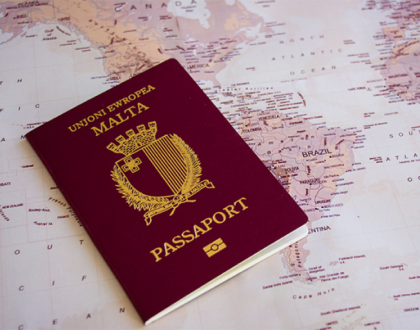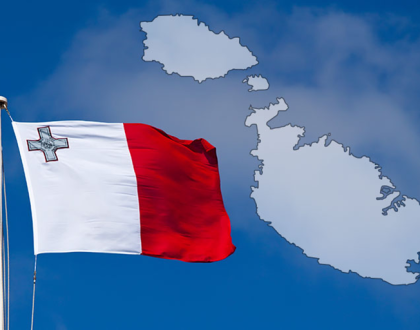Anti-Money Laundering Measures in Malta

Measures put in place to combat money laundering and ensure compliance are crucial components of financial systems worldwide, and Malta is no exception. With stringent regulations and frameworks, Malta has become a key player in the fight against money laundering. Understanding the country's compliance and anti-money laundering measures is important for businesses and individuals navigating the Maltese financial landscape.
Overview of Anti-Money Laundering Regulations in Malta
Historical Context
For quite some time, Malta has been committed to combatting money laundering and terrorist financing activities. The country has consistently enhanced its regulations to align with international standards and best practices.
Key Legislation and Regulatory Bodies
Malta boasts a robust legal framework for anti-money laundering, with key legislation such as the Prevention of Money Laundering Act and the implementation of the EU's Anti-Money Laundering Directive. The regulatory bodies responsible for overseeing compliance include the Financial Intelligence Analysis Unit (FIAU) and the Malta Financial Services Authority (MFSA).
A significant entity in this framework is the FIAU, which spearheads efforts in intelligence analysis and dissemination to combat financial crimes effectively. On the other hand, the MFSA serves as Malta's financial regulator, ensuring that entities under its supervision comply with AML/CFT requirements.
Implementing Compliance Programs
Essential Components of Effective Programs
An imperative component of effective compliance programs in Malta includes thorough risk assessments, robust policies and procedures, regular monitoring, and reporting mechanisms to ensure adherence to regulations.
Training and Employee Awareness
On top of having robust policies in place, training and employee awareness play a critical role in ensuring that all staff members are knowledgeable about their responsibilities in preventing money laundering and terrorist financing.
Another vital aspect of training and employee awareness is the regular updating of training materials in line with the latest regulations and industry practices to keep employees informed and equipped with the necessary skills to detect and report suspicious activities.
Challenges and Issues in Anti-Money Laundering
Evaluation of Current Challenges
One of the primary challenges in anti-money laundering efforts in Malta is the need for enhanced collaboration and information sharing between regulatory bodies, law enforcement agencies, and financial institutions. This can lead to gaps in detecting and preventing illicit financial activities.
Future Predictions and Necessary Adjustments
One potential future trend in anti-money laundering is the increased use of technology such as artificial intelligence and blockchain to improve monitoring and detection capabilities. It is crucial for Malta to invest in these technologies and provide adequate training for personnel to effectively utilize them in combating money laundering.
Current anti-money laundering measures in Malta must evolve to keep pace with the changing landscape of financial crimes. Implementing stricter regulations, enhancing cross-border cooperation, and adopting advanced technologies will be necessary in staying ahead of money laundering activities.
Final Words
Presently, compliance and anti-money laundering measures in Malta stand as robust defenses against illicit financial activities. By adhering to strict regulations and monitoring suspicious transactions, Malta continues to uphold its commitment to combat money laundering and terrorist financing. The collaborative efforts between regulatory authorities, financial institutions, and law enforcement agencies are instrumental in ensuring the integrity of Malta's financial system and safeguarding its reputation as a reputable international financial center.
FAQs
What are the key anti-money laundering regulations in Malta?
Malta's anti-money laundering framework is governed by the Prevention of Money Laundering Act and adheres to the EU's Anti-Money Laundering Directive. Regulatory oversight is provided by the Financial Intelligence Analysis Unit (FIAU) and the Malta Financial Services Authority (MFSA).
How does the Financial Intelligence Analysis Unit (FIAU) contribute to Malta's AML efforts?
The FIAU plays a crucial role in intelligence analysis and dissemination to combat financial crimes effectively. It ensures compliance with AML/CFT regulations and provides guidance to financial institutions.
What are the essential components of compliance programs in Malta?
Effective compliance programs in Malta include thorough risk assessments, robust policies and procedures, regular monitoring, and reporting mechanisms to detect and prevent money laundering activities.
What challenges does Malta face in anti-money laundering efforts?
Malta faces challenges in enhancing collaboration between regulatory bodies, law enforcement agencies, and financial institutions, which can lead to gaps in detecting illicit financial activities.
What future trends are expected in Malta's anti-money laundering measures?
Future trends include the adoption of technologies like artificial intelligence and blockchain to improve monitoring capabilities. Malta aims to strengthen regulations and cross-border cooperation to stay ahead of evolving financial crimes.
Recommended Posts

Sportingtech Boosts Security with Continent 8
October 4, 2024

Legal Win for Malta’s Citizenship Program
October 4, 2024

Why iGaming Brands Choose Malta
October 4, 2024



